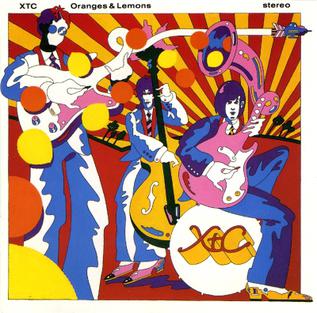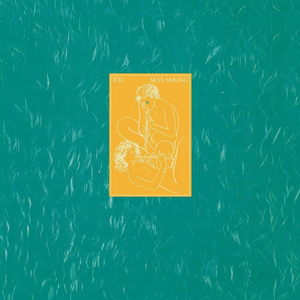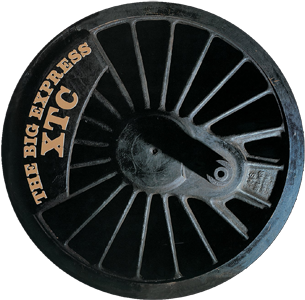XTC is an English band.
Contents
XTC may also refer to:
XTC is an English band.
XTC may also refer to:
Grass refers to the many species of plants in the family Poaceae.

XTC were an English rock band formed in Swindon in 1972. Fronted by songwriters Andy Partridge and Colin Moulding, the band gained popularity during the rise of punk and new wave in the 1970s, later playing in a variety of styles that ranged from angular guitar riffs to elaborately arranged pop. Partly because the group did not fit into contemporary trends, they achieved only sporadic commercial success in the UK and US, but attracted a considerable cult following. They have since been recognised for their influence on post-punk, Britpop and later power pop acts.
Omnibus may refer to:

Andrew John Partridge is an English guitarist, singer, songwriter, and record producer who founded the rock band XTC. He and Colin Moulding each acted as a songwriter and frontman for XTC, with Partridge writing and singing about two-thirds of the group's material. While the band were a formative punk group, Partridge's music drew heavily from 1960s songwriters, and his style gradually shifted to more traditional pop, often with pastoral themes. The band's only UK top 10 hit, "Senses Working Overtime" (1982), was written by Partridge.

Oranges & Lemons is the 11th studio album and the second double album by the English band XTC, released 27 February 1989 on Virgin Records. It is the follow-up to 1986's Skylarking. The title was chosen in reference to the band's poor financial standing at the time, while the music is characterised as a 1980s update of 1960s psychedelia. It received critical acclaim and became the band's highest-charting album since 1982's English Settlement, rising to number 28 in the UK and number 44 in the US.
After may refer to:
Jason and the Argonauts are characters from Greek mythology. This title may also refer to:
Limelight is a type of stage lighting used during the nineteenth century.

Drums and Wires is the third studio album by the English rock band XTC, released in 1979 on Virgin Records. It is a more pop-oriented affair than the band's previous, Go 2 (1978), and was named for its emphasis on guitars ("wires") and expansive-sounding drums. The album was their first issued in the United States and their first recorded with guitarist Dave Gregory, who had replaced keyboardist Barry Andrews earlier in 1979. It features a mix of pop, art rock, new wave and punk styles with much rhythmic interplay between XTC's two guitarists.

Skylarking is the ninth studio album by the English rock band XTC, released 27 October 1986 on Virgin Records. Produced by American musician Todd Rundgren, it is a loose concept album about a nonspecific cycle, such as a day, a year, the seasons, or a life. The title refers to a type of bird (skylark), as well as the Royal Navy term "skylarking", which means "fooling around". It became one of XTC's best-known albums and is generally regarded as their finest work.

Apple Venus Volume 1 is the thirteenth studio album by the English rock band XTC, released in February 1999. It was the first on the band's own Idea Records label through Cooking Vinyl and distributed in the United States by TVT Records. The album relies heavily on strings, acoustic guitars and keyboards, expanding upon the more orchestral approach developed on the group's previous LP Nonsuch (1992), whilst its lyrics tackle paganist themes, middle age, blossoming romance, and rebirth. Apple Venus Volume 1 was met with critical acclaim and moderate sales, peaking at number 42 on the UK Albums Chart and number 106 on the US Billboard 200.

The Big Express is the seventh studio album by English rock band XTC, released on 15 October 1984 by Virgin Records. It is an autobiographical concept album inspired by the band's hometown of Swindon and its railway system, the Swindon Works. In comparison to its predecessor Mummer (1983), which had a modest, pastoral approach to production, the album features a bright, uptempo sound marked by studio experimentation and denser arrangements, setting a template that they further developed on subsequent albums.
Ecstasy may refer to:
A torch is a portable burning light source.
Fly on the wall is a television or film documentary style.
Dear God may refer to:
Science Friction may refer to
The Garden of Earthly Delights is a painting by Hieronymus Bosch.
”XTC” ("Ecstasy") is a song with words and music written by the English composer Edward Elgar in 1930. It was his last song, and written for the soprano Joan Elwes.
In Another Life may refer to: